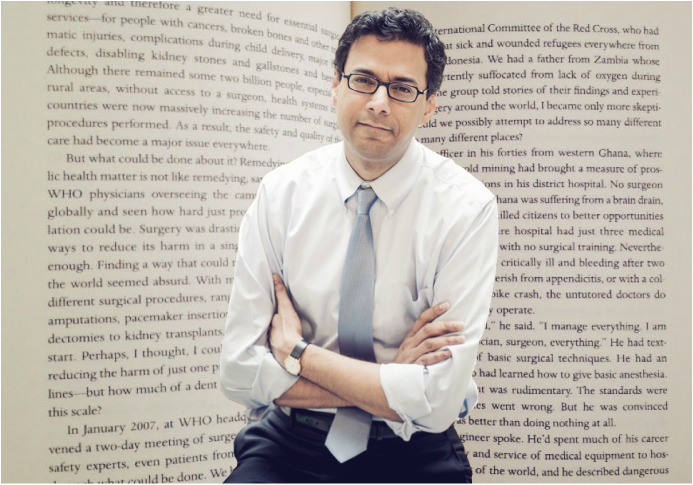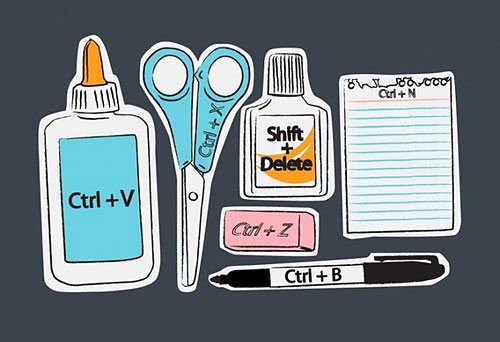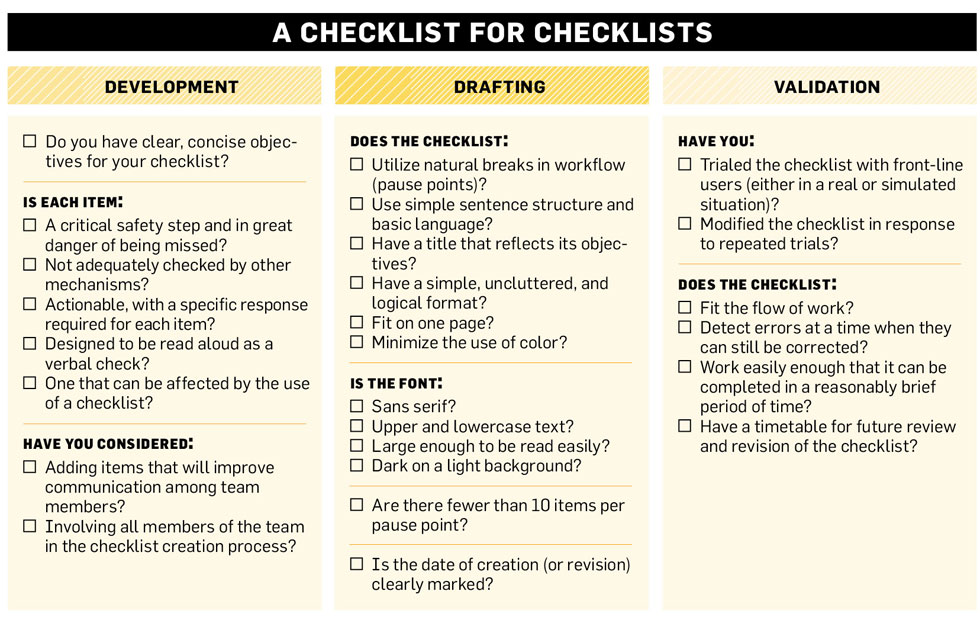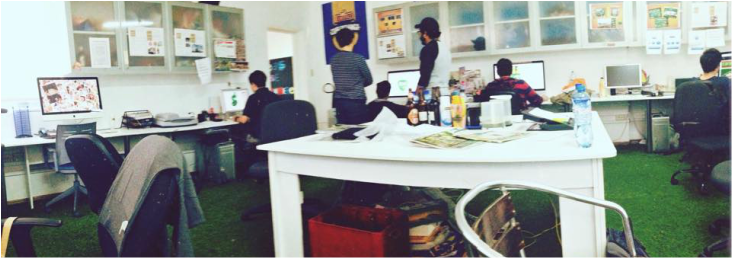Why is it that with exceedingly educated experts, deeper knowledge, understanding of the world, striving innovations, and continuously improving technologies we are still FAILING? Why do we keep making the same MISTAKES? Well, Gawande summarizes this in his book called THE CHECKLIST MANIFESTO. The problem isn't that we are getting hit by karma, but we are beign sabotaged by the intricacy of knowledge--the theory furthuer than what we can understand--that has surpassed our capacity to interpret, predict the unexpected, and transmit it to the people. Therefore, in his book, Gawande debates how the easiest and most logical way to battle this is through a simple CHECKLIST.
One of the main reason we FAIL is because we overlook some steps, which lead us to make the dumbest mistakes. The problem comes when we are trying to save time and we either merge steps or ignore others--steps that don't seem that important or we look at them as simple--in order to advance faster. In this precise moment is when we are setting ourselves up for failure. This inconvenient is mainly observed when we use long overwhelming checklists that have multiple tasks and the clock is ticking; therefore, Gawande suggests how the best CHECKLISTS apply the rule of thumb: keeping it to between five to nine items (which is the limit of working memory). Shortcutting is not a SMART move, so you want to keep your checklist brief by focusing them on ''the killer items''--steps that are dangerous to skip (because they are crucial) and even so are sometimes omitted (Gawande).
Most of the times FAILURES are a "result not so much from IGNORANCE (not knowing enough about what works) as from INEPTITUDE (not properly applying what we know works)", Gawande mentions. Thus, CHECKLISTS help us apply the ample knowledge we have CORRECTLY. We are sometimes so pressured by the unexpected moment or emergency that we apply the wrong method, medicine, strategy, or ingredient at the wrong situation even though we completely dominate or have expertise in the field.
Finally, the CHECKLIST method is not all PERFECT, it has it's flaws. Gawande, even though he mentioned many reasons it has helped different people succeed, comes to admit the imperfections of the CHECKLIST. One of the problems I have--I bet many do--is that I get fixated with checklists, I create many of them (for anything) and I follow them word by word. Instead of using them as an aid or guide I see them as a bible. This is something I came to realized last semester working as an event planner. CHECKLISTS can be very limited because every situation is D I F F E R E N T and UNEXPECTED things can arise. The dilemma is that CHECKLISTS are made for a certain situation or specific moment, they aren't F L E X I B L E. You have to be able to known when you can use them and when you need to abandon them because they are useless. CHECKLISTS can ONLY be used for the situation they have been written for, otherwise you have to use knowledge and past experience to come up with a solution or procedure.
Gawande will not only teach you how to improve your communication at work, to avoid making dumb mistakes, or how to apply the knowledge you have correctly at all times, but he will also captivate your attention with his personal experiences as a doctor in the ER. He shares real anecdotes of how CHECKLISTS have changed many hospitals and even pilot's landings. This book has taught me many things that will help me with event planning, and in general for organizing. Don't miss this MUST READ by Gawande.






 RSS Feed
RSS Feed
